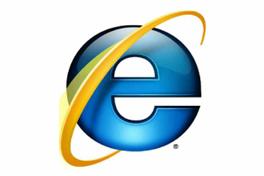Internet Explorer: Is there any way back?
Rivals aren’t quite snapping at its heels yet, but can Internet Explorer 8 arrest the decline of Microsoft’s browser?

The recent web browser usage statistics don't make friendly reading for Microsoft. Where once upon a time its Internet Explorer browser absolutely dominated its market, with a share of a staggering 95 per cent, it's been in gradual decline for years. And with faster-moving and less bloated competitors, most specifically Firefox, arriving in the past few years, it's been under steady and effective attack.
The numbers for February 2009, as compiled by Net Applications, see Microsoft's continued struggles with Internet Explorer brought into focus. The browser has been in decline continuously for some time, and right now, it holds 67.51 per cent of the market.
In contrast, Firefox which barely registered five years ago has grown to 21.73 per cent of the market, and it's continuing to escalate. Apple too is resurgent, with its Safari browser now accounting for eight per cent of the market, and then there's the small matter of Google Chrome too.
It's already overtaken Opera to snare itself 1.15 per cent market share. With Google expected to give Chrome a major push in the next twelve months, it's fair to say that the browser marketplace has never been tougher.
And that shifts the onus very much onto Microsoft's upcoming Internet Explorer 8, from which much is expected and hoped for. But can it turn the tide back in Microsoft's favour?
Meet number eight
Right now, Internet Explorer 8 is available in beta, and digging into the detail of IE's market share, it already accounts for 1.17 per cent of the entire browser market the most used version of Internet Explorer is 7, with 47.32 per cent share, followed by the 18.85 per cent who are still using IE6. That said, beta versions have been swimming around for a year already, so perhaps that number's not too impressive.
Sign up today and you will receive a free copy of our Future Focus 2025 report - the leading guidance on AI, cybersecurity and other IT challenges as per 700+ senior executives
However, IE8 has been attracting some positive feedback. Certainly the early reviews of the beta were complementary, and Microsoft's move towards standards-compliance is both welcome and long overdue.
For too long, the firm has been able to get away with bending standards to suit its own product, so dominant was it in the marketplace. Thus, rivals got a browbeating for seemingly being incompatible with certain web pages, when it was actually Microsoft in the wrong.
Ironically, it's Microsoft that's on the receiving end of that now, but its about-turn shouldn't be sneered at. Backwards-compatibility is inevitably going to be a crucial part of Internet Explorer 8 to the point where a specific feature to render IE7 pages is being built into it and once over this current hurdle, web developers the world over will be able to cater for one set of standards alone. That has to be a good thing.
Yet despite this, and the generally warmly-received feature set of Internet Explorer 8, there's still a problem that's hampered the latest iteration of Microsoft's browser. And that's time.
Too long?
The first betas of IE8 got positive reviews last year because they were implementing new ideas, were loading pages in some cases faster than their rivals, and were dealing with Flash content well something that browsers struggle with most of all, it seems.

